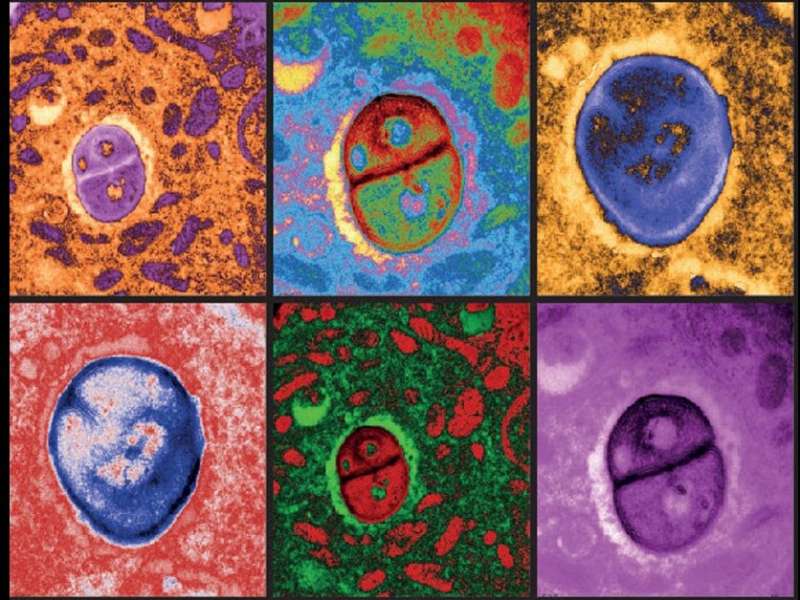
Cancer immunotherapy may get a boost from an unexpected direction: bacteria residing within tumor cells. In a new study published in Nature, researchers at the Weizmann Institute of Science and their collaborators have discovered that the immune system “sees” these bacteria and shown they can be harnessed to provoke an immune reaction against the tumor. The study may also help clarify the connection between immunotherapy and the gut microbiome, explaining the findings of previous research that the microbiome affects the success of immunotherapy.
Immunotherapy treatments of the past decade or so have dramatically improved recovery rates from certain cancers, particularly malignant melanoma; but in melanoma, they still work in only about 40% of the cases. Prof. Yardena Samuels of Weizmann’s Molecular Cell Biology Department studies molecular “signposts”—protein fragments, or peptides, on the cell surface—that mark cancer cells as foreign and may therefore serve as potential added targets for immunotherapy. In the new study, she and colleagues extended their search for new cancer signposts to those bacteria known to colonize tumors.
Using methods developed by departmental colleague Dr. Ravid Straussman, who was one of the first to reveal the nature of the bacterial “guests” in cancer cells, Samuels and her team, led by Dr. Shelly Kalaora and Adi Nagler (joint co-first authors), analyzed tissue samples from 17 metastatic melanoma tumors derived from nine patients. They obtained bacterial genomic profiles of these tumors and then applied an approach known as HLA-peptidomics to identify tumor peptides that can be recognized by the immune system.
The research was conducted in collaboration with Dr. Jennifer A. Wargo of the University of Texas MD Anderson Cancer Center, Houston, Texas; Prof Scott N. Peterson of Sanford Burnham Prebys Medical Discovery Institute, La Jolla, California; Prof Eytan Ruppin of the National Cancer Institute, U.S.; Prof Arie Admon of the Technion—Israel Institute of Technology and other scientists.
Source: Read Full Article
